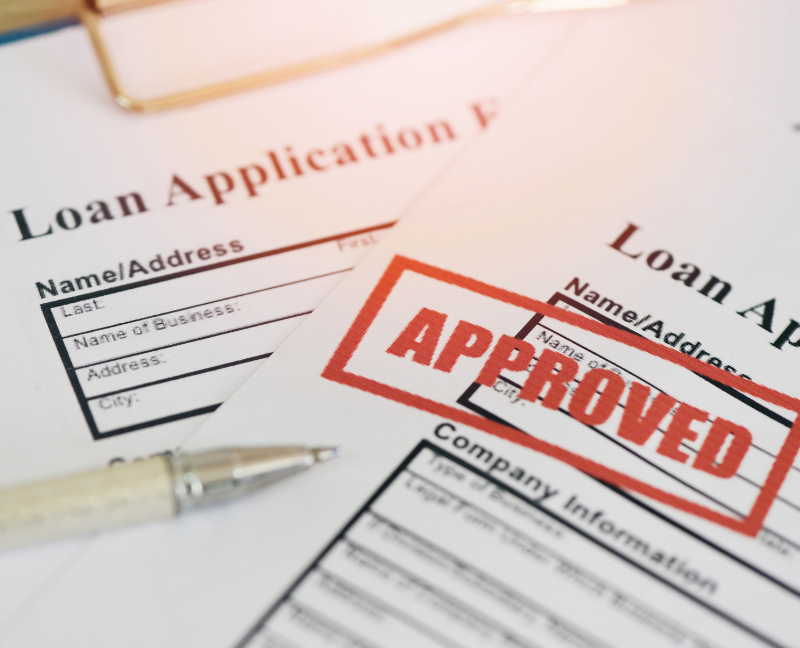If you're borrowing a loan whether to buy a house, car, or other purpose, having a good credit score is a must.
Having an excellent credit rating helps not only with the lender's decision; it also gives you access to better interest rates and repayment terms. Getting good credit scores also unlocks access to the best rewards like a credit card that offers cash back, luxury benefits, and travel perks.
Your credit score is determined by the lender using several factors, such as your new and current credit, payment history, the amount owed, etc.
Credit scores range from:
On the other hand, there's a bad credit rating. A bad credit score is usually a result of missing out on payments like your monthly bills, loans, or credit card. So basically, a poor credit remark is when you have a lower-than-average credit score, and it can have a big impact when you try to apply for new credit.
When borrowing a loan, lenders will want to know your "creditworthiness," and they do this by checking information through your credit report. They will know if you’ve paid your loans on time, how you treated your past debts, and your existing loans (if there are any), which can indicate how you will likely pay the new debt.
Having a low credit score often means having a lower chance of getting the lender's approval; however, there are loan providers who might still let you get the loan but at the expense of getting higher interest rates since your credit score represents a higher risk.

Low credit scores, which range from 300 to 579, have a great impact on your chances of applying for credit, influencing the type of loan and products you’ll be approved for. It will also have an overall impact on your financial life.
Fair credit scores, which range from 580 to 669, could also hurt your chances of getting approved for loans. And if ever approved, you're most likely to get less favorable loan terms, such as high-interest rates or annual fees compared to those who have good credit scores and limited card choices.
Getting a poor or fair credit score makes it difficult to accomplish your goals because having low scores reduces your chance for a loan and less likely to have financial assistance. You should take action as soon as you can and work to have good credit. Pay on time, limit yourself from getting unnecessary things you won’t be needing and if possible don’t go all out with your credit limit. By doing so, you're increasing your chance of getting approved.
Private loan providers or banks will use your credit score to determine if you will be offered a credit card, mortgage, vehicle loan, or other credit products. This also helps them determine the interest rate and the credit limit you receive based on your capability to pay.
Excellent means extremely good. It is the highest tier of credit score you can have. Many of the best lenders or credit card companies require you to have good or excellent credit. If you want to benefit from annual statement credits, luxury and travel perks, and many more, you’ll need to have at least good credit. Meanwhile, if you have an excellent credit score, you can maximize approval odds and have a high chance to get the loan.
However, having an excellent credit score doesn’t guarantee you’ll get approved. Aside from having an excellent credit rating, there are also some factors to look for, such as your income, monthly payments, and financial picture.
Your credit score is more than just a number. It can have a big impact on your life. That's why you should take simple steps to avoid getting poor credit remarks. If you want to know your status or where you stand, some credit bureaus can help you check your score regularly.
To learn more about credit ratings or mortgages, feel free to visit our website or leave a comment below.
It’s no secret that real estate is considered a promising investment by many. After all, it has long been proven to be one of the ways to become wealthy. However, it doesn’t come with a map, and going for it alone can be risky and challenging. Luckily, there are ways that you can do to put yourself on the right track and be successful.
Nonetheless, encountering someone afraid of real estate investing is common. Some people believe that if they risk putting their money into real estate, there would be nothing left. On top of this, the negative thought is that it cannot succeed without investing large amounts of its own money. However, it is not true. Regardless of the market, one of the excellent ways to make money and build your wealth is still through real estate.
Some of the ways include:
Markets that are down may be the most fertile of opportunities. For a person to become successful in this field, they must possess courage, strength, and risk. Being creative and adaptable to change also helps in making your real estate journey a success.
It’s because the risk is minimized by the length of time you hold onto your property. When the economy is good, so is the market and your property. While certain universities offer general coursework and programs that will benefit the real estate investor, searching and listening to real estate investors' success stories can also help you. Not only will you learn tips on how to invest in real estate successfully, but you can also know their perspective by thinking like a pro!
Below are a few tips to get started:
The ability to see creative financing is always critical, especially in today’s market where everything is going up. However, the perspective of the most successful real estate investors might help and that is to always see opportunities everywhere.
It is common for investors to invest in properties that will generate a lot of profit or can multiply their initial investment. Studying and considering your education will help you in the long run. Making a strategy correctly can make a great return on investment.
Before entering into this investment you should always go for different options. Never invest in something that you are unsure of. Knowing and understanding what you are doing is the key to being successful in this business.

Knowing your local market and what is going on in it is important. Always avoid hot markets if you want to be successful, that’s a good rule of thumb. If you purchase on hot markets with rising rates, you risk buying it at its peak and losing more money. Your purchase and its rate of success will always be influenced by its surroundings and factors at work.
To become successful in real estate investment, the focus should be on the location of the property. The more neighborhoods you have the more its success rate will be. Invest in those neighborhoods which have high population density, are developing, and have all the basic amenities.
Consider investing in other places and cities that will give you a large pool of investments and better opportunities.
You don’t always have to grab every opportunity that comes your way. Remember that timing is everything. You can be successful and still go broke if every investment is mortgaged to the hilt. Try balancing it by having a good mix of safety and still stretching your resources.
Look for distressed sellers that haven’t put the property on sale as you can get it much lower than the market price value. Distressed sellers may be couples who got divorced or families that just wanted to sell the house and divide the profit. It could be someone that will move to another state or country and just want to sell it fast. Sometimes, buying from a distressed seller is better than foreclosure auctions. You’ll often find problems and lots of repairs that will double your cost.
You must understand this. You should always make room for costs like the repairs and other issues on the property you bought and not just the cost of the property and realtor commissions. Doing it DIY is a no-no as it detracts from the value of the house. Trying to fix it on your own makes it unsellable unless you’re a professional in the field and are capable of doing the work.
When buying a property, always aim to put down at least 10% to 20%. How can you manage risk? By having a large amount of cash reserve. Running to a lender can make you go into debt that also comes with a high-interest rate.
Maintaining a large money reserve will reduce the risk of having the property sell fast at a loss if you have the funds. Plus you don’t go deeply into debt. Managing the risk in the right manner will improve your chances of success.
Don’t go making any decisions on your property without knowing its rules. Before making any move ask if it’s allowed. Understand the degree of work that requires permission or permit before you start making any changes.
Becoming successful in life or in every aspect you are reaching takes time. The same goes for real estate, you have to step forward and take the risk to have that much-wanted financial freedom.
Real estate investment offers a variety of opportunities and better cash flow than the stock market if you know how to handle it well. Still, you need to have awareness and be extra careful so you can avoid mistakes that will cause you to go bankrupt.
If you want to learn more about real estate investing, our team at RE/MAX Advanced Realty - Indy Home Pros is here to help. Leave a comment or call us at 317-298-0961 to know the basics of real estate investing.
You'll eventually reach the long-awaited closing day if everything else is in line. When you attend your closing meeting, the home title is officially transferred and you become the new legal owner of the property.
Your closing day is all about wrapping up loose ends and finalizing the transaction. Signing all documentation, amending the deed, and paying your down payment and closing charges are all part of this process.
After their loan has been authorized and the Closing Disclosure has been signed, clear-to-close buyers are rarely refused. However, in some cases, a lender may deny an applicant at this point. These rejections are frequently the result of significant changes in your financial status.
Leaving your job, opening a new large credit line, or taking out another loan can all raise red flags with your home lender. If at all possible, avoid making any major improvements until the house is yours.
Once they're cleared to close, most buyers won't have to wait long to meet at the closing table. Considering this, you should have at least a 3-day buffer between obtaining the Closing Disclosure and closing.
You should also be aware that if you discover any blockages between the time you're cleared to close and the actual closure, your closing time frame may be extended. For example, if you discover substantial concerns with the home during your final walkthrough, you may need to postpone your closing meeting to provide the seller with sufficient time to make these repairs.
Is it better if I close at the end of the month?
If you arrange your closing near the end of the month, you will pay less in mortgage interest for the month in which you close. This might result in hundreds, if not thousands, of dollars in savings on closing fees. However, depending on your financial condition, it may make more sense for you to close at the beginning of the month.

What makes a mortgage commitment letter different from clear to close?
A mortgage commitment letter is an assurance from a lender that they would lend you money; nevertheless, obtaining the letter simply implies you have finished the underwriting procedure for the loan you have sought. Before your mortgage lender fully approves your loan and you are cleared to close, you or the property may still need to meet certain final criteria.
What are the underwriting standards for being clear to close?
Your lender will go over the underwriting standards you'll need to achieve to become clear to close in your mortgage commitment letter. Your lender may normally seek the following to determine whether you have met these conditions:
The Bottom Line: 'Clear to Close' Indicates You're Nearing the Finish Line
Although becoming CTC isn't the end goal for your loan, most home buyers can anticipate a closing date soon.
As with the other processes in your mortgage application, getting to your closing date as soon as possible will necessitate a thorough understanding of the clear-to-close process and what follows. Constant communication with your mortgage provider is critical to moving your application along swiftly, which is why it's critical to work with a lender you can fully trust.
While being clear to close indicates that you're nearing the end of the process, you can start your home-buying journey by becoming pre-approved. Knowing how much money you can borrow before you start shopping can allow you to shop smarter and make a more compelling offer when you find your dream property.
Most home purchasers are overjoyed when their lender tells them they are ready to close after going through the several steps of the mortgage application process - and for good cause. With underwriting, document verification, and the offer completed, being clear to close - also known as "CTC" - in real estate is a solid indication that your lender will provide you with the financing you require.
All of this is to say that just because you're clear to close doesn't imply you've arrived. Before you receive the keys to the property, you must fulfill a few final tasks.
"Clear To Close" simply implies that you've met all of the requirements and conditions for your mortgage to be closed. At this point, your lender has thoroughly examined your documentation and determined that you meet the requirements for the type and amount of mortgage you're seeking.
Lenders will normally begin planning for the closing day after a borrower has been permitted to close. Your loan officer will set a date and time for your closing meeting and will notify your title company, real estate attorney, and any other attendees. Your lender will also prepare any final documents that you will be required to sign on the day of your closing.

Clear to close necessitates a significant amount of effort on the part of both the lender and the borrower. Missing even one step could mean the difference between a fully cleared loan and an application that is declined.
To get your mortgage cleared for the closing date, you must first complete the following steps:
Working through each step contributes to the 30-45-day average time between underwriting and closure. If you want to reach CTC status as soon as possible, make sure you prepare your documentation ahead of time, complete your mortgage application, meet all of your underwriting requirements, and maintain an open line of communication with your lender.
Once your lender has informed you that you are ready to close, you will have completed the majority of the mortgage procedure. However, there are a few crucial steps between you and the property.
Your loan officer will give you a Closing Disclosure once you've passed underwriting and conditional approvals. This five-page document covers the terms and conditions of your mortgage agreement, offering a detailed breakdown of all the costs and fees you'll be responsible for when you sign.
Understanding your Closing Disclosure is one of the most crucial phases in the home-buying process because you are responsible for any charges listed. Check that you are not signing a document that has errors or terms that will interfere with your payback plan.
Even if you buy the house as-is, a final walkthrough after receiving the Closing Disclosure is your opportunity to check the property is in the condition you and the seller agreed upon. Although walkthroughs aren't officially required once you're cleared to close, neglecting a last check could be a costly error.
In most circumstances, the house should be ready to move into by the time you do the final walkthrough. However, if anything is amiss with the house, this is your final chance to fix it before it becomes your responsibility.
These are just some of the basic things you need to know about Clear To Close. In the next part, we’ll dive deeper into what happens after the Closing Day, frequently asked questions about Closing Disclosure, and more.
With everything that's happened in the world in the past few years, you may wonder if investing in real estate is still worth it?
The short answer is – yes. Investing in properties that increase in value over time like real estate is always a good idea. However, while investing in apartment complexes, commercial properties, and single-family houses can provide extra income and large payouts, it also carries risk. Right research and finding the best places to invest could make you rich as it will boost your solid income.
Purchasing real estate in Indiana currently has a lot of advantages, including passive income, equity, and monthly rents. These are just a handful of the benefits of investing in real estate.
When it comes to real estate investing, you have many choices. Depending on what you need or want, you can start by purchasing a small family home then later on have it rented out and collect the monthly rents. This way you earn money while waiting for its value to go up high enough to have a big profit when you decide to sell it in the future.
Buying a commercial space or lot will also give you monthly income. Alternatively, you may own a small commercial land and collect monthly rent from several businesses, including hair salons, food carts, and other enterprises. Apartment buildings with many units can also make a stable income.
However, like other investments, real estate doesn't always pay off. Sometimes the real estate you invest in loses value over time if you are not wise about it. Understanding the risk and doing proper research will help you avoid these situations as investing in real estate is still one of the smartest decisions you can make. Discussing further will help you what real estate investing entails and the benefits and possible pitfalls that come with it.
Buying into REIT or Real Estate Investment Trust is one of the easiest ways to enter and invest in real estate. In REIT, you invest in real estate without having to worry about maintaining or managing any physical buildings.
REITs are businesses that own real estate, including office, retail, hotel, apartment, and warehouse facilities. You buy a share of these properties when you invest in a REIT. Similar to mutual fund investing, however, a REIT deals with real estate as opposed to stocks.
Buying properties over time increases value. It can be an asset, you benefit from its gain value especially if the place is developed and with a flourishing population and establishments.
Choosing a perfect location closer to prime and commercial may immediately bring value to your investment in real estate such as townhouses and condominiums for sale to rise and grow shortly. When you choose wisely it will appreciate overtime typically at a rate that is much higher than annual inflation.
Another justification is that real estate is unquestionably one of the best investment options due to its low risk and high return potential. As property values increase over time, it offers protection against inflation. Aside from owning a primary dwelling, income production is one of the most crucial factors for parallel property investors. Buying it at its lowest and selling it high with its value.
Whether you invest in commercial real estate or residential you can never go zero because it's an asset that will always have value. It will give you a steady cash flow and also has a great return.
Investments like real estate is a long-term investment which means you can keep and hold it for several years and wait for it to appreciate and increase in value. At the same time, earning it monthly by renting it out while you wait for its value to rise if that's your goal.
Developers with a good reputation have more credibility. You will know it by looking at their previous projects and checking the quality if it lives up to your expectations. Doing a bit of research and reading reviews will also help you decide to go and look for options. You may ask your real estate developer to help you maximize your real estate investment by looking for affordable house and lot packages, condominium units, or commercial spaces.
When the economy is good, many companies open, and the opportunity for renting commercial space or residential space is high. Another method to gain from purchasing real estate now, such as commercial spaces, is that it provides real estate investors with numerous options to buy, hold, and sell assets.
Furthermore, One advantage of purchasing real estate is that there are no restrictions placed on your property which allows you to have full control of your investments. It's like earning money in the comfort of your own home, generating passive income through rent income from these office spaces.
You are the master of your own time like a boss! So, explore when you buy as there are a lot of possibilities and infinite opportunities await.

Real estate investing has tax advantages. Your property taxes, property management fees, property insurance, the cost of continuing upkeep, the cost of repairs, and the money you spend advertising your property to potential renters are just a few of the expenditures related to owning an investment property that can be written off.
The gain you realize if you sell your property for more than you paid for it won't be subject to income tax. Instead, it will be subject to capital gains tax, which has generally lower tax rates than income tax. Even less capital gains tax will be due if you invest in communities known as opportunity zones.
Real estate investment you can't afford in full can go to leverage funds. In real estate, this means that you're using other people's money to purchase properties. Taking loans from a bank, mortgage lender, or union is an option and has a selection of how you will pay them back over time.
Having your own investment property lets you be your own boss, which many investors find rewarding. These are the advantages that aren't financial with owning investment properties. Providing rental housing or attracting businesses to commercial sites that will offer much-needed services to local communities are fulfilling.
As recession fears grow, you may be wondering how a recession affects house values. A recession can have an impact on property prices, but you should not expect home prices to decline. Any change in housing prices during a recession will be influenced by unique circumstances. These are the supply of available homes for sale, as well as the health and size of the active homebuyer audience.
Every day, we assist clients in determining the value of their real estate in Indiana. If you're not from Indiana but want to know what happens to housing values during a recession, keep reading.
A recession is a major reduction in economic activity that lasts for a lengthy period of time.. Recessions usually affect the majority of the economy, including the property market. A recession can have a variety of effects on the property market.
The most likely result is decreased overall activity. Fewer transactions will come from fewer sellers wanting to sell and fewer buyers willing to acquire. During a recession, observers and experts in the housing market should expect fewer home sales and purchases.
Second, the market's buyer and seller behavior will shift. More expensive house sellers may become more willing to negotiate with homebuyers. Homebuyers may benefit from this. Homebuyers, on the other hand, are likely to become more protective about property pricing and more demanding of concessions.
Finally, during a recession, housing prices can become more volatile. However, a significant price reduction is not guaranteed. Home prices are affected by housing demand, employment rates, interest rates, and inflation.
During a recession, housing prices might rise, fall, or remain flat. Both supply and demand are required in the housing market.
To better grasp what to expect or to make more accurate predictions regarding the housing market during a recession, you must first understand the elements that drive housing supply and homebuyer decision-making.
The following factors have the most sway over the US housing market. Understanding this will help you better predict what will happen to housing values during a recession.
Unemployment Rates
During a recession, the unemployment rate will affect real estate prices. If unemployment remains low, many people will remain confident in their ability to earn a living. This will boost homebuyer confidence and encourage greater property prices. However, if the unemployment rate rises, many purchasers will become hesitant and wait for a certain moment to buy a property. In this case, housing prices will plummet.

Interest Rates On Mortgage
Mortgage interest rates have a significant impact on home values. If mortgage interest rates are high and rising, there is a considerable likelihood that housing values will fall during a recession.
For starters, a higher mortgage interest rate increases the cost of borrowing money to purchase a property. As a result, to get the same repayment price, the buyer must offer less for the residence. Buyers can also offer the same amount but will have a higher mortgage payment due to the increased mortgage interest rate.
Second, rising mortgage interest rates reduce home prices by harming present homeowners. A family that owns a home but needs a larger home is unlikely to go from, say, a 3% mortgage rate to a 6% mortgage rate. Instead, that family will try to wait for the mortgage rate to fall. This restricts supply because that family is not selling, but it also removes activity from the market.
Finally, many first-time buyers will become dissatisfied with the process of purchasing a property. They saw the earlier lower rate as a squandered opportunity. Many people would prefer to wait for the cheap rate to return in the future. Again, during a recession, this activity will reduce total activity and may result in reduced property prices.
Wage Growth Vs. Inflation Rate
Inflation and salary growth go hand in hand. Consumers will feel the pinch as costs for basic goods and services rise. Homebuyers will be unwilling or hesitant to pay high costs for a property if prices rise faster than wages. If salaries do not keep up with inflation, house prices will fall during a recession.
Quantity Of People Within Specific Age Brackets
The size of the active homebuyer audience is important. The more people who are ready to buy a property at the entry level, the more activity and housing demand there will be in the housing market. This will cause housing values to rise. However, if there are few prospective buyers at the entry level, property prices will fall owing to a lack of housing demand.
The most significant factor to consider is the number of people aged 25 to 35 at the bottom. The United States currently has over 44,000,000 people in this age bracket, which is the highest number in history. This is one of the key reasons why the property market has performed so strongly since 2019. This big entry-level base will also help to stabilize housing values amid a 2020s recession.
Supply Quantity And Quality
What happens to house prices during a recession is heavily influenced by housing supply. However, supply comes in two parts.
The first component of supply is quantity. This aspect of supply is often mentioned. If supply is limited and demand is high, property prices will rise. If there is more supply than demand, housing prices are projected to fall. During an economic slump, the other component of supply that is less discussed becomes highly significant.
The other side of supply that is rarely discussed is the supply's quality. Specifically, the supply's aspirational desire. Homes must entice prospective buyers. For years, the same sorts of homes and home styling have been built in numerous sections of the country.
As a result, folks who can afford the latest and greatest in new homes may be hesitant to purchase. This is because the newest stock is uninteresting. This will create a bottleneck by keeping the middle tier of the market in their current homes owing to a lack of desire to relocate.
We hope that this post has enlightened you. If you have any questions or want to learn more about real estate, please call us at 317-298-0961 today!
Curious about escrow – how it works, its benefits, the fees that come after, and more? If yes, this article might help whether you’re an Indiana real estate agent or a home buyer / seller.
A homeowner's insurance and property tax escrow account functions similarly to a savings account.
Escrow accounts are typically used by homeowners who have mortgages on their homes. You, the homeowner or borrower, deposit money into an escrow account kept by your lender each month. Your homeowner's insurance and property taxes are paid with the funds in the account. Your lender will make the necessary payments to your homeowners insurance provider and the local taxing authority on your behalf.
Your lender will be given instructions on how to determine the monthly payment you must make to your escrow account.
Your lender received the homeowner insurance quote from the business you wanted to employ when you bought your house. The lender's personnel researched the taxes and noted the rate. To correspond with the twelve months of the year, they then divide this number by 12. Your payment for principal and interest is increased by this sum. Indeed, lenders have the option to charge more.
Your lender is permitted to impose an overage or a buffer fee. To prepare for rises in the price of insurance or taxes is the reason this would occur. This was acknowledged by the Real Estate Settlement Procedures Act (RESPA), but it also imposed restrictions on your lender. Only a sum that is one-sixth more than the actual insurance and tax obligations for any given year may be retained by your lender. This cushion occasionally becomes excessively large. If so, your lender will offer you a refund to give you the money that was improperly held in escrow.
Many property purchasers want to have an escrow account. You benefit from the escrow account because it is a terrific instrument for creating a budget for future costs.
The local government may seize your property if you don't pay your property taxes. Additionally, insurance shields your house from disasters. Each year, a fee must be paid for each of these. The escrow account allows you to make regular payments for these costs throughout the year rather than receiving a sizable charge every year that you might or might not be ready for. It is a great method to stay up to date on the costs involved in house ownership.

Cash to close is a term that your real estate agent may use to describe the sum of the down payment, prepaid interest, title costs, loan origination fees, and impounds.
Homeowners insurance and property taxes are impounded items, also referred to as escrow items. Most frequently, at the closing table, you will buy your full first year's worth of homeowner insurance. The title firm will also collect additional premium payments for an additional two to four months. In terms of taxes, the title company will gather two to five months' worth of property taxes, depending on when the taxes are due again. The lender will receive these overages and deposit them in your escrow account.
You'll receive a monthly mortgage statement. A line item for escrow items, such as the property taxes and insurance, will probably be visible if you look. This comes in addition to your other expenses, such as principal and interest payments.
Your house payment can increase if your taxes or insurance go up. Instead, if these decrease, your mortgage payment would as well. Once more, your lender must abide by RESPA and is only permitted to collect an excess of no more than one-sixth of the actual amount payable for taxes and homeowners insurance for the year.
Escrow accounts are utilized to regularly cover homeowner insurance premiums and property tax obligations for your home. Escrow accounts are beneficial. It is a terrific way to stay on track with your spending plan and prevent worrying about receiving a huge bill in the mail. Additionally, because your lender handles the payment distribution, you won't fall behind on your property taxes or risk having your homeowners insurance lapse as a result of missing payments.
If you're planning to sell or buy real estate in Indiana or want to learn more about escrow, our team at RE/MAX Advanced Realty - Indy Home Pros is here to help. Call us at 317-298-0961 to get started.
A lien on your home might be a big issue, particularly if you're trying to sell it. Buyers can also worry that the property they intend to purchase has a debt.
There are procedures in place and locations you can visit to find out if a lien has been put on the property you own or want to buy. This article will explain to you how to find out if there is a lien against your property.
A lien on a house is a judgment amount owed by a property owner and is attached to a property. A civil lawsuit, unpaid income taxes, or unpaid property taxes are a few examples of sources for liens. Additionally, a utility company can place a lien against a property for unpaid utility costs.
A mechanic's lien may also be put on a piece of property. Mechanic's liens are liens for work done on a property by a vendor.
Disclaimer: We are a real estate company; not a law so please don't take this as legal advice. These are just the common steps to putting a lien on a property.
To accomplish this effectively, we strongly advise you to speak with a local attorney in the area where the property is located.

Checking for liens on a property can be done in several ways. You can accomplish this on your own, but we suggest solutions that entail paying a professional to complete the task for you. You may rely on the job of those experts because they are experienced in performing it. You also have some remedy if a mistake is made since you paid someone to execute the service.
Take A Look For Yourself
The property's county recorder should be contacted. You can check the documents to see if there is a recorded lien. You might benefit from the recorder, but it's not guaranteed. You'll need to be clear about what you're looking for.
Have An Attorney Lookup You
Basically, this approach is what you see in technique number one. However, the task is being done by a lawyer.
Reach Out To A Title Company
Any property's title work can be handled by a title company. They are professionals at searching historical records and finding liens. The most effective way to search for liens on a property is through a title firm. Use a title company to complete the transaction and guarantee that you receive a clean title if you are purchasing real estate in Indiana. This is the most effective method for a buyer to safeguard themselves and obtain a clean title to the property.
Final Note
It's crucial to have a clear title to a piece of land. At the same time, as a seller, you want to be certain that the buyer receives a clear title. You could benefit from using the materials in this article.
When purchasing or selling a home, RE/MAX Advanced Realty aids buyers and sellers in reaching better conclusions. If you have any more inquiries, don't hesitate to get in touch with us. At Indy Home Pros, our group of real estate professionals is prepared to assist you.
The process of getting pre-approval for your home loan is a vital stage in the process of purchasing a property.
It estimates how much money you could borrow if you apply for a mortgage and gives you more confidence when it comes time to place a bid on the house of your dreams.
We will share some guidelines and advice that will assist you in choosing the most appropriate for your circumstances about home loan pre-approval.
If a lender gives you pre-approval, indicative approval, or approval in principle, it means roughly the same: they are willing to lend you a specific amount of money. To accomplish this, they will analyze your current financial condition and determine how much money you can take out as a loan.
It is essential to remember that getting pre-approval does not ensure they will provide funds. It is a sign that your loan application will probably be accepted unless there is a significant change in your circumstances.
Your lender will conduct a property value and reevaluate your finances before providing conditional approval; this is the final stage toward securing your house loan. Once you've selected your property, the lender may conduct a property valuation.
The pre-approval process will tell you how much money you can borrow. When participating in an auction, knowing your maximum acceptable bid and understanding how much money you can spend on a particular piece of real estate is essential.

Pre-approvals are seen favorably by buyers, sellers, and real estate agents. It shows that you are a serious buyer and makes it less likely that you will back out of an offer because you don't have enough money. This may give you an edge if you want to negotiate an offer.
When they are prepared to begin looking into purchasing a property, the majority of consumers ask for home loan pre-approval. However, it's a good idea to consider a few points before applying.
It's great to choose your chosen lender before applying for several pre-approvals from various lenders in a short period because doing so can affect your credit score.
Pre-approvals typically become invalid after a period of three to six months. However, most lenders will negotiate new terms, provided your circumstances remain the same.
If there is a change in your case, such as when you start a new job or take out a personal loan, your lender may need to reconsider the application you submitted.
If you submit all relevant papers before applying for the loan, the pre-approval process for a home loan can be completed within 48 hours.
Recent bank statements, pay stubs or another source of income, proof of identity, and a view of your assets and liabilities, such as savings and previous loans, are required for pre-approval of a home loan.
Do you have more questions about home loans and home ownership? We are here to help! Dial 317-298-0961 to talk to one of our specialists or leave a comment below.
Due to the unpredictability of interest rates, you may be debating whether or not now is the best moment to lock in the rate on your home loan.
One of the essential aspects of the process of purchasing a property is becoming knowledgeable about the distinctions between interest rates that are fixed and those that are variable.
For this reason, we have compiled this guideline, which will provide some information about the benefits and drawbacks of each type of loan, allowing you to determine which option will be most beneficial to you, given your circumstances.
The term "fixed rate home loan" refers to the borrower "fixes" the interest rate at the current market rate, regardless of what that rate may be, for a predetermined amount of time. During that period, your interest rate will remain the same, irrespective of any changes in rates that may occur in the market.
Lock in interest rates are popular with first-time homebuyers. A fixed-rate loan lets you know how much you'll pay back during the fixed rate period. Budgeting is easier with a fixed rate and repayment schedule. You'll also feel better knowing there won't be any shocks if interest rates climb during the fixed rate period.
Redrawing or making more payments may not be possible. Even though you'll know your monthly payments, if interest rates fall, you'll still pay the higher rate for the fixed rate loan term. If you refinance to lower your rate, you may have to pay "break" or "exit" fees.
A loan with interest rates that are subject to change over the 25 or 30-year term of your loan is referred to as a variable rate loan. These loans typically follow the official cash rate changes set by the Reserve Bank of Australia (RBA), or they may be subject to change if your lender needs to make adjustments.

This loan usually offers redraw and offset accounts. If interest rates fall, your loan repayments will, too, save you money. Variable loans let you make extra payments to pay the loan faster and lower interest. A variable loan makes refinancing to a lower rate without significant break costs easier.
You get access to some cool things but also some drawbacks. If interest rates rise, you might have a more difficult time making your repayments. This could put you in a stressful financial position and make it more challenging to stick to your budget.
Split loans are the best of both. You "divide" your loan into fixed and variable parts, and you can choose which half is fixed.
This method lets you make extra payments to reduce loan interest. You can still use an offset account with a variable-rate loan.
If interest rates rise, just half of your loan will be affected, which may reduce your stress. Split loans allow extra repayments and minimize interest rate risk.
To learn more about this, you can visit our website or call us at 317-298-0961 now.

8313 W. 10th St
Indianapolis IN 46234
dennis@indyhomepros.com
317-316-8224